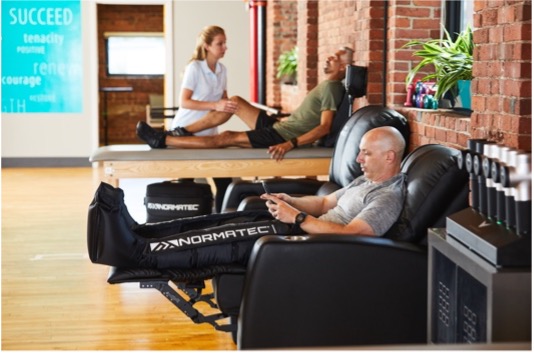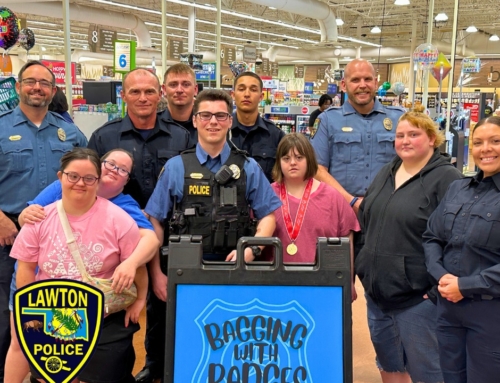Last time, we covered blood flow restriction training and how this can be incorporated into your training to aid in prevention of injuries and improvement of performance. The final and just as equally important lesson as all the rest is the importance of recovery and nutrition. So, to close this out, we should take a look at some startling science that recently came out and how this can impact our recovery.
Cold Plunge – this is when you fully submerge your body up to your neck in water that ranges from 34° to 59°Fahrenheit for 3-10 minutes at a time. Doing this 2-4 times per week results in:
- Decreased in inflammation associated with working out and injury
- Massive increase in endorphins and dopamine – up to 205% increase
- Potential increase in testosterone – some studies show increases and some inconclusive
- Increases lymphatic drainage
- Accelerated metabolism
- Release of cold shock proteins – aids in healing process
With all this comes an increased sense of wellbeing, better sleep, better recovery, and improved performance overtime. For most, it is suggested to start slow. Start at your higher end of the temperature range, build your tolerance to the lower temps, then gradually increase your time.
Compression Sleeves – studies show that as little as 30 minutes in compression sleeves provides the physiological equivalent of 12 hours of rest. Most often used are the lower limb sleeves that cover your foot to the hip. These gradually inflate with air then proceed with rhythmic sequence of various levels of compression up and down the limb. This helps for lymphatic drainage, removal of lactic acid and increase in blood flow. Studies have shown that this aids in accelerating the healing process.

Nutrition/Hydration – this could be a subject for an entire series in itself. If you want optimal performance out of your system, then you have to fuel your system for optimal performance. As little as 1% dehydration results in a 10% decrease in performance, increased risk for migraines, and makes you more susceptible to injury. #1 indicator of hydration is the color and odor of your urine. Lack of proper nutrition increases your risk for a plethora of systemic diseases and is the number one influence on your performance and injury risk. The human body is a walking chemical reaction and if the chemical environment is not optimal, then you will have less than optimal performance. Back pain, lack of sleep, indigestion, lack of energy, feeling depressed, being overly anxious, and constantly getting injured can be directly related to lack of nutrition and dehydration.
Sleep – this one goes without saying but lack of sleep is one of the biggest influences on both mental health as well as overall health. REM (rapid eye movement) sleep is when the body heals. If you fail to get into REM or are in REM for short periods of time, this will have a direct impact on every aspect of health. For those that have a hard time sleeping, there are multiple things, supplements, and technologies out there today that can help you get into better sleep cycles. If you suspect this is something that is impacting your health, it is highly recommended to invest into a smart device (Apple watch, etc.) that allows you to track sleep cycles over a period of time. This helps to identify if you have a problem and more importantly can aid you in seeing strategies you deploy are truly helping or not.
Over the course of this series, we have talked about a lot of different aspects that can mitigate risk for injuries sustained when affecting an arrest. We hope this was helpful, but before we go, we will conclude this entire series by sharing about Brazilian Jiu Jitsu (BJJ) training and the impact that training has on reduction of musculoskeletal injuries in affecting an arrest. We will share a comprehensive study showing the impact on injuries as well as some other studies showing the impact on mental health. Intrigued? … Stay tuned.

Trent Nessler brings a wealth of physical therapy and academic research to his role as President of Ready Rebound Vitality.
Trent is the founder and developer of the ViPerform AMI™ & ViMove+ AMI™, ACL Play It Safe and Run Safe. He holds a bachelor’s degree in exercise physiology, a master’s in physical therapy, and a doctorate with a focus in biomechanics and motor learning.
Dr. Nessler has been a sports medicine physical therapist for 25+ years and is co-developer of a 3D movement assessment that is used by more than 450 pro teams, colleges and organizations and which has been used to assess over 40,000 athletes in the U.S.
A published researcher, and an author of How to Build a Badass Firefighter, Trent speaks internationally on the topic of ACL (anterior cruciate ligament) and injury prevention and serves as a consultant for professional teams and organizations.
As a sports physical therapist, avid weight lifter for more than 40 years and competitive Brazilian Jiu Jitsu brown belt, Dr. Nessler is always looking for ways to apply the latest science to optimize outcomes and enhance athletic performance.
To Find Out More, Visit https://readyrebound.com/








Get Social